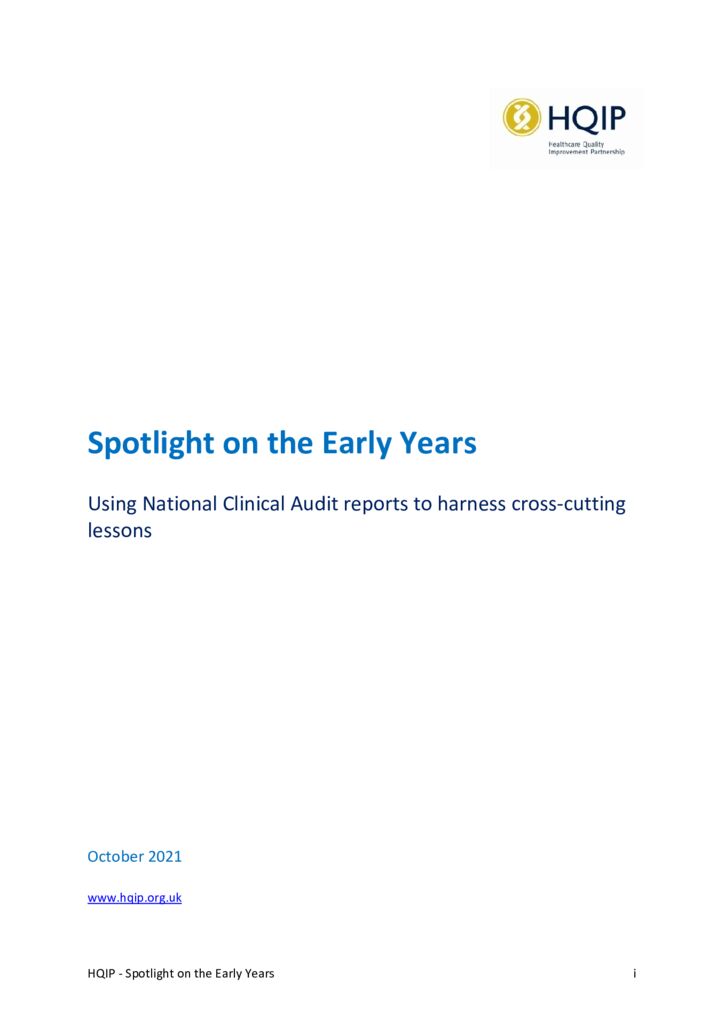Spotlight on the Early Years
This report from HQIP aims to identify cross-cutting lessons relating to early years healthcare with a focus on health inequalities and variation in care, by reviewing a selection of NCAPOP audit reports.
“Improving the quality and timeliness of data is the quickest way to improve knowledge about outcomes in the Start for Life period…particularly important when looking at inequalities”,
The Best Start to Life
More specifically, 10 reports with data cohorts spanning four years from the National Neonatal Audit Programme (NNAP), the National Maternal and Perinatal Audit (NMPA) and the Paediatric Intensive Care Audit Network (PICANet) were utilised. In total 264 recommendations from these reports were reviewed and, in turn, a number of over-arching recommendations to support a reduction in health inequalities were made. These include:
- Health equality needs to be specifically addressed in NCAPOP programmes by, for example, setting a requirement for a minimum dataset of patient characteristics
- Audit measures should be standardised to enable reporting on universal characteristics such as ethnicity and deprivation, improving the scope for programme-level learning, and
- Changes to audit reporting should be introduced to move towards shorter reports, with timely interactive datasets and links to online improvement resources
This thematic review of audit recommendations clearly demonstrates a focus on using data to drive improvement locally. However, it also shows that the reporting and analysis of ethnicity and deprivation is not currently at the forefront of the NCAPOP. This programme has the potential to be a key resource in our understanding – and in addressing health inequalities in early years – but we recognise that further work is required in order to realise this potential.
Read the full report: You can read the report by clicking on the link below.
Stay-up-to-date: For notifications of future reports from HQIP, sign up to our mailing list.


